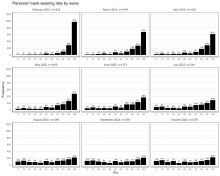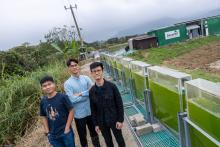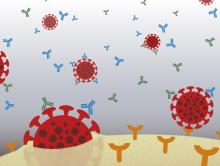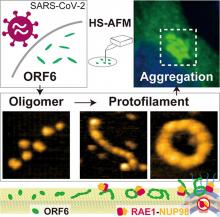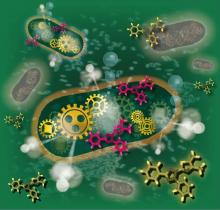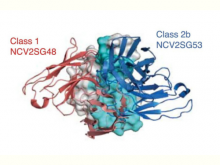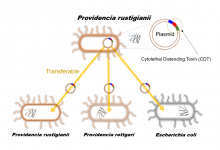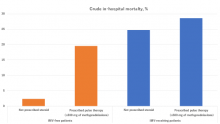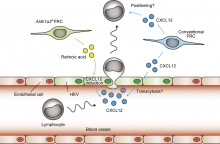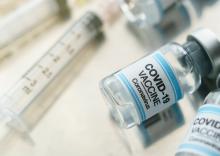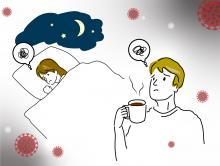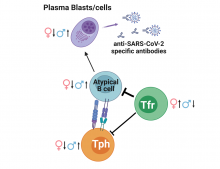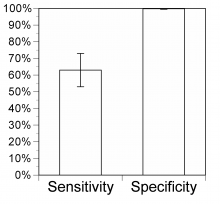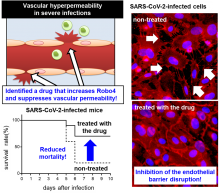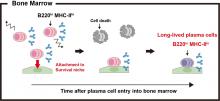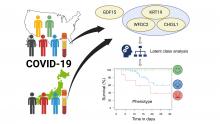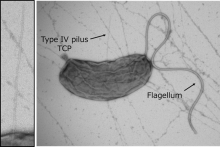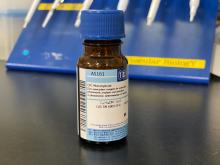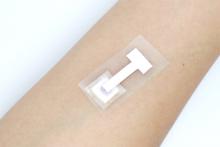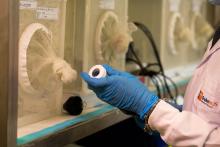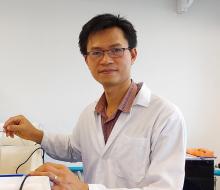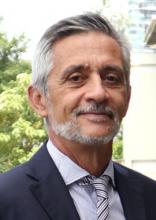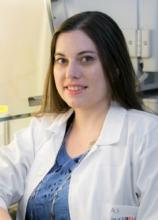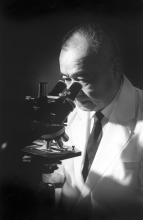Medicine & Healthcare Infectious disease
News
24 Apr 2024
Researchers from Osaka University examined how specific types of contextual changes, such as government recommendations and perceived behavior of others, influenced mask-wearing behavior during the COVID-19 pandemic. They found a complex relationship between societal norms and individual behavior during the pandemic, indicating that future strategies for public health crises interventions should consider various factors and contexts, including cultural predispositions.
16 Apr 2024
Algae, a kind of organism commonly found on the water surface, is a highly efficient carbon absorbent, which can capture more carbon dioxide (CO2) than trees. Alcarbo Technologies Limited (Alcarbo) is a biotechnology company incubated by the Seed Fund and Angel Fund of City University of Hong Kong (CityU)’s HK Tech 300. It cultivates microalgae using genetic mutation technology and uses its self-developed “photobioreactor system” (PBRs) and nanobubble technology to enhance the carbon capture capacity of microalgae. This allows microalgae to capture about 68 times the amount of CO2 of an equivalent area of forest, making them “Super Carbon Capture” species.
10 Jan 2024
Novel findings from a preclinical head-to-head comparison show that administering a COVID-19 vaccine as a nasal spray rather than a subcutaneous injection enhances the body’s long-term immune memory, thereby increasing the vaccine’s overall effectiveness. This research could pave the way for a COVID-19 vaccination strategy that depends on fewer boosters to achieve the same level of protection against SARS-CoV-2 viruses.
10 Nov 2023
New insights on how individual immune responses to the SARS-CoV-2 virus, particularly in mutant strains, can influence the efficacy of COVID-19 vaccines
27 Oct 2023
Researchers at Kanazawa University report in the Journal of Physical Chemistry Letters high-speed atomic force microscopy studies that shed light on the possible role of the open reading frame 6 (ORF6) protein COVID19 symptoms.
03 Oct 2023
The researchers from Osaka University showed how two psychological factors, belief in just deserts (BJD) and human rights restrictions (HRR), differ across countries. BJD tended to be higher in Japan and lower in the UK, whereas HRR was higher in China and lower in Japan. Public health messages for high-HRR individuals could potentially be used effectively to reduce disease-related discrimination and prejudice.
11 Sep 2023
Researchers at Osaka Metropolitan University have developed a measurement technique that rapidly measures the number of viable bacteria in food products. They have succeeded in drastically reducing the inspection time from 2 days to about 1 hour. With this technology, it will be possible to confirm food safety before shipment from factories and prevent food poisoning.
04 Sep 2023
In recent years, an emerging zoonotic pathogen called E. albertii, transmitted by wild animals such as raccoons, has garnered attention due to its remarkable similarities to several strains of Escherichia coli (E. coli), including O157, and its potential to cause severe illness, particularly in children. A research group at Osaka Metropolitan University has developed a novel culture medium that allows for the selective cultivation of E. albertii from raccoon fecal samples. This enabled the successful isolation of E. albertii even from samples with very low quantities of this bacterium. Their findings are expected to further elucidate the bacteriological characteristics of E. albertii and to contribute to the control of foodborne illnesses.
26 Jun 2023
What scientists learned about the rare antibodies targeting SARS-CoV-2’s Achilles’ heel could help fine-tune our COVID-19 vaccine strategy for longer-lasting immunity.
15 Jun 2023
A joint research group led by Osaka Metropolitan University has clarified how pathogenic genes in some Providencia spp., which have gained attention as causative agents of food poisoning as well as enterohemorrhagic Escherichia coli. O157 and Salmonella, are transferred within bacterial cells. Their findings are expected to provide new insights into the identification of infection routes of Providencia spp. and the establishment of preventive methods for food poisoning.
27 Mar 2023
Researchers from Osaka University have found that repeated high-dose treatment, known as pulse therapy, with the steroid methylprednisolone reduces in-hospital deaths in COVID-19 patients who receive invasive mechanical ventilation, but not in patients who don’t receive invasive mechanical ventilation. These findings were only possible using appropriate statistical methods to remove bias from the data, which originally seemed to show that the opposite was true. These results can improve patient treatment and reduce COVID-19-related deaths worldwide.
23 Mar 2023
Researchers from Osaka University identified a subset of fibroblastic reticular cells (FRCs) that simultaneously express two proteins, Aldh1a2 and Tie2, making them unique to areas of the omentum called milky spots. Genetic depletion of these cells caused structural disruption of milky spots. The FRCs were critical to the abdominal immune system as they regulated CXCL12 levels, a molecule necessary for lymphocyte recruitment from blood circulation. These insights can help develop novel treatments for intra-abdominal infections.
07 Mar 2023
Researchers in Sarawak, Malaysia, measured the immunity responses of people who received different COVID-19 vaccines.
24 Feb 2023
A research group from the Osaka Metropolitan University Graduate School of Medicine conducted a survey of 285 patients regarding the long-term aftereffects of COVID-19. As a result, they revealed that more than half of COVID-19 patients still had residual symptoms, even close to a year afterward. It became clear that fatigue, abnormalities in senses of taste and smell, hair loss, and sleep disorders could persist, regardless of the severity of the initial COVID-19.
13 Feb 2023
Team studies discrimination, mental distress, and work impairment in COVID-19 survivors.
13 Feb 2023
Researchers from Osaka University have shown sex-specific differences in the immune response to COVID-19 infection. By identifying and analyzing the immune cell population in COVID-19 patients, they showed that infection results in a reduced ratio of circulating follicular T regulatory (cTfr) cells to a network of antibody-producing proteins, correlated with dysregulated antibody production. This cTfr cell reduction is more significant in males, providing cellular evidence for the observed association between increased risk and male sex.
30 Jan 2023
Researchers from Osaka University compared the sensitivity of rapid antigen tests (RATs) and polymerase chain reaction (PCR) tests for the Omicron variant of COVID-19 using data produced by the Japan Professional Football League. They found the comparative sensitivity of RATs for Omicron was not affected by the duration from the onset of symptoms to testing.
13 Jan 2023
Researchers led by Osaka University demonstrated the role of endothelial cell-specific protein Roundabout4 (Robo4) in the reduction of vascular permeability and mortality in mouse models of severe infection. The research team identified a drug inhibitor that increased Robo4 expression and reduced mortality in sepsis and SARS-CoV-2 mouse models of infection. These findings may aid in the development of drugs to reduce the mortality rate of severe infectious diseases.
14 Dec 2022
Researchers led by Osaka University generated a time-stamping method to trace the development and survival of plasma cells in the bone marrow and spleen. Using a mouse model in which plasma cells were fluorescently labeled in an inducible manner, they found that plasma cells were continuously replenished by new cells, a small portion of which differentiated into long-lived plasma cells (LLPCs). These findings may aid in the development of new vaccines that efficiently induce LLPCs.
25 Nov 2022
Researchers led by Osaka University identified plasma proteins associated with critical pathogenesis in COVID-19. Using a novel blood proteomics method, the researchers evaluated two discovery cohorts and one validation cohort of patients with COVID-19 and healthy volunteers. Cell adhesion proteins WFDC2, GDF15, CHI3L1, and KRT19 were shown to be associated with disease severity in patients with COVID-19, and may serve as potential targets for therapies to treat COVID-19 infection.
22 Nov 2022
The research team investigated the role of D-amino acids in severe viral infection. Mouse models of influenza A and COVID-19 infection and patients with severe COVID-19 demonstrated reduced D-amino acid levels in the blood. Supplementation with D-alanine mitigated body weight reduction in IAV model mice and improved survival in COVID-19 model mice. D-amino acids may represent potential biomarkers and therapeutic agents for the treatment of severe viral infection.
31 Oct 2022
While both protect from severe disease, inactivated SARS-CoV-2 and spike mRNA vaccines trigger different T-cell responses.
19 Oct 2022
Osaka Metropolitan University researchers conducted a study of human mobility to find effective lifestyle changes that enable people to exist with the novel coronavirus COVID-19, while maintaining social and economic activities. They found that restricting the human mobility in specific areas according to the state of the pandemic, rather than uniformly controlling human mobility, could be effective in reducing the number of new COVID-19 infections.
14 Oct 2022
Researchers from Osaka University have found that the Vibrio cholerae colonization factor TcpF forms a flower-shaped trimer to specifically bind to the minor pilus protein TcpB resulting in secretion by the type 4 pilus secretion system into the extracellular space. This finding could help lead to the development of a novel anti-adhesive drug that selectively interrupts the TcpF-TcpB interaction, which may replace antibiotics in the treatment of cholera.
06 Oct 2022
Low concentrations of cetylpyridinium chloride, an antimicrobial agent present in mouthwashes, inhibit the infectivity of four variants of SARS-CoV-2.
09 Sep 2022
While the primary site of SARS-CoV-2 infection is in the nose, most antiviral immunity studies have been performed with peripheral blood. T-cell analysis of nasal swab samples suggests getting infected with SARS-CoV-2 following vaccination could confer potentially more robust, nasal-based immunity.
26 Aug 2022
Researchers have made perovskite solar cells more efficient and stable, A new cause of Parkinson's related cell death, Hibernating superpower is in the blood, Common mechanism for cancer and atherosclerosis, COVID-19 antibody skin-based test. Read all in the August's Editor's Choice plus an Interview with Prof Sutee Yoksan on The story behind the new dengue vaccine & this month's Asia Research News 2022 magazine pick - The evolutionary history of puddle frogs.
22 Aug 2022
Scientists show that there is a close association between clinical cases of COVID-19 and viral loads in wastewater, with the viral loads picking up to two days before the cases were detected.
01 Jul 2022
Researchers report a new, minimally invasive, antibody-based detection method for SARS-CoV-2 that could lead to the blood sample-free detection of many diseases
21 Jun 2022
• The Satellite Center at Duke-NUS marks the latest achievement for the SingHealth Duke-NUS Academic Medical Centre’s vision for a Discovery District on its Campus.
• It is also the first Asia Pacific site in Johnson & Johnson’s network of research collaborations aimed at addressing endemic and emerging pandemic threats.
Events
23 Nov 2020 to 24 Nov 2020
Global health emergencies look set to be a part of our lives. What awaits us in 2021 and what lessons can we draw from COVID-19 coverage? How can we support newsrooms and journalists for more informed and impactful journalism about global scientific, technical and human challenges? What role does journalism play in seeking solutions for a better world that is both healthy, and sustainable?
Researchers
Dr Ashfaq Ahmad Shah 'اشفاک ' born on 6 June 1992, from south Kashmir, Doderkoot ددیرکوٹ Kulgam, Jammu and Kashmir, India is the infection immunity doctoral researcher at the Graphic Era (Deemed to be University), Dehradun, UK, India. Dr Shah is pursuing novel dimensions of infection immunity pertaining to the correlation and impact of phyto-immune components termed phytoalexins and phytoanticipins on the benign immune system of human beings. This parameter of immunology is termed phytoalexin-immunomodulation scrutiny. His area of interest lies in Preclinical and clinical studies, i.e. vaccine adjuvant development, development of anti-inflammatory and antimicrobial compounds, evaluation of antibiotic resistance, study of Immuno-modulatory activities, disease model studies, protease isolation against specific protein antigens, and the discipline of Kalology including tyrosinase inhibition, PPO inhibition, skin whitening agents, kerato-peeling etc. Dr Ashfaq is a Doctoral Researcher, Reviewer and Editorial member of several journals and books. He is having several publications in journals of national and international repute. So far he has published more than thirty scopus infection/immunology/pharmacology scientific papers, including Fifteen international book chapters and two international books. Mr Shah received the Young scientist award in August 2023 for his groundbreaking academic performance in the field of infection immunity. Mr Shah has also been an editor of Wikipedia pages in medical science since 2015 with more than 1000 edits in medical topics available to medical literature worldwide.
Dr. Van was previously the Director of the Research Institute for Aquaculture No.1 (RIA1) under Vietnam’s Ministry of Agriculture and Rural Development. She has extensive expertise in aquatic animal health and aquaculture safety management.
Professor St-Hilaire is associate head and professor at the Department of Infectious Diseases and Public Health, City University of Hong Kong (CityU). She has extensively researched fish nutrition and diseases, including treatment efficacy, and has helped investigate fish disease outbreaks.
Dr. Singhal serves as senior principal investigator at the Bacterial Immunopathology Lab at A*STAR ID Labs in Singapore. His work at A*STAR ID Labs revolves around three main pathogens: Mycobacterium tuberculosis, Gram-negative bacteria and Dengue virus.
Dr. Dong currently works at the Asian Institute of Technology. He does research in Aquaculture, Pathology, Infectious Diseases, and Aquatic Bioscience.
Suraj Bhattarai is a global health specialist and tropical medicine physician with research interests in infectious disease epidemiology and surveillance, health systems, and urban health. He is a co-founder and research fellow at the Global Institute for Interdisciplinary Studies, a Kathmandu-based academic institute that promotes and conducts interdisciplinary research. He is a member of Global Young Academy and an Alumni steering committee member of IAP-Young Physician Leaders Programme. He obtained medical training in Nepal and masters in Tropical Medicine & International Health from the LSHTM, UK.
Prof. Tomoharu Yasuda's laboratory studies how immune system is regulated through the antigen receptor, intracellular signaling and lymphocyte programming.
Prof. Antonio Bertoletti's current research focuses on the development of new immunological based therapies (TCR-redirected T cells, HLA-peptide specific antibodies) for the treatment of HBV and Hepatocellular carcinoma (HCC), and the characterization of human intra-sinusoidal hepatic immune system.
Professor Linfa Wang is a Professor with the Emerging Infectious Diseases Programme at Duke-NUS Medical School, Singapore.
Associate Professor Sophia Archuleta is the Head and Senior Consultant of the Division of Infectious Diseases at the National University Hospital, Singapore.
Prof. Ashley St. John is an expert in viral immunology and emerging infectious diseases, such as dengue and Zika viruses. She heads the Laboratory of Immunity and Immune Pathology at Duke-NUS Medical School.
Giants in history
Minoru Shirota (April 23, 1899 – March 10, 1982) was a Japanese microbiologist who invented the popular fermented drink Yakult.
Wu Lien-teh (10 March 1879 – 21 January 1960) was a Malaysian-born doctor who invented a mask that effectively suppressed disease transmission. Winning the prestigious Queen’s Scholarship enabled Wu to become the first Chinese student to study medicine at the University of Cambridge.


